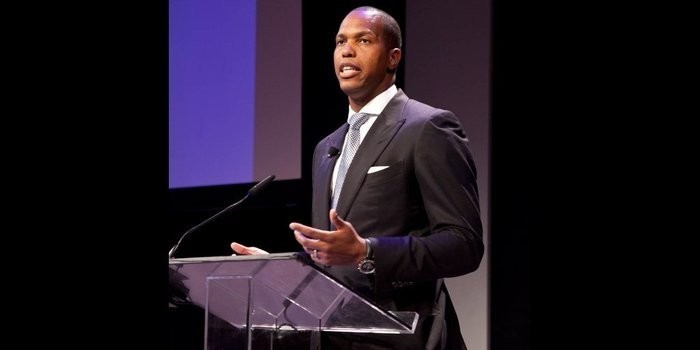实习生如何成为摩根士丹利的高管:人际关系很重要

|
暑期实践季已经正式拉开序幕,大部分企业都做好了准备,迎接来自高中和大学的各色新面孔来参与他们的各种项目。未来这些实习生中会诞生出首席执行官吗? 完全有可能。 对此,我了解到的最棒的故事之一,主人公是摩根士丹利(Morgan Stanley)的现任全球首席营销官曼德尔·克劳利。克劳利是公司里级别最高的非裔美国人,自1992年在添惠证券投资(Dean Witter Reynolds)的芝加哥办事处成为实习生以来,他稳步攀升进入了管理层。约1.6万名曾与克劳利紧密共事多年的财务顾问普遍认为,克劳利拥有成为首席执行官所需的特质。 克劳利进入了公司的管理委员会。他说:“显然,这个位置很重要。”不过,他之所以能到达那个位置,是因为他努力、聪明,而那些与他不相似的权力人士,也不断愿意了解他的发展需求并支持他。 克劳利在芝加哥的南部长大。抚养他的是他勤劳的祖父母。他们一个是服务员,一个是奥斯卡·梅耶(Oscar Meyer)的工厂工人,夫妻俩移居到了美国南部生活。克劳利的规划很简单:从职业高中毕业,然后可能去学一个师范专业。他听说添惠证券投资为高中生提供了实习机会,决定去尝试一下。第一天上班时,他穿着一身金色正装,这是他唯一的正装,也是他最好的衣服。“我不知道为什么,不过交易柜台的经理对我很感兴趣。” 这种兴趣让经理对他迅速培训,帮助他了解市场和金融,并教他如何在餐厅点单,如何滑雪,以及如何合适着装。他说:“那是一扇观察世界如何运转的窗户。”克劳利在地方高校就读的同时,经理安排他继续兼职打工。克劳利说:“他知道我需要钱。” 克劳利努力在9/11事件发生后的高级复杂融资领域打拼着。不过在2008年,一位过去帮助他过渡进入更重要岗位的密切支持者突然离开了公司。那时,克劳利才意识到那些越来越复杂的人际关系有多么重要。他说:“我感觉孤立无援。我确实有那么一段时间感到气馁。” 在与员工亲密团体谈话时,在市政厅和高校演讲时,在与零售经理、顾问和管理委员会交流时,克劳利都分享过这个故事。他的观点是:人际关系很重要。他表示:“改变的速度往往非常缓慢,而各色人的说辞却有着实际的意义。”(财富中文网) 译者:严匡正 |
It’s officially summer intern season, and most corporations are preparing to welcome fresh-faced high school and college students of color as part of their diversity programs. Is a future CEO among them? It’s entirely possible. One of the best stories I’ve collected while on this beat is that of Mandell Crawley, the current Global CMO of Morgan Stanley (MS, +0.88%). Crawley is the highest-ranking African American in the firm, and has enjoyed a steady ascent to the C-Suite, starting as an intern in the Chicago office of Dean Witter Reynolds in 1992. The running buzz among the some 16,000 financial advisers who’ve worked closely with Crawley over the years is that he’s got what it takes to be CEO. He sits on the firm’s management committee, “optically, that’s important,” he says. But how he got there was a combination of his hard work, intelligence, and the consistent willingness of powerful people who didn’t look like him to understand his development needs and advocate for him. Crawley grew up in Chicago’s south side, raised by hard-working grandparents—a waitress and an Oscar Meyer plant worker—who had migrated from the South. His plan was to keep it simple, finish vocational high school, and maybe study to be a teacher. He had heard about a high school internship offered by Dean Witter Reynolds and went for it. He showed up his first day in a gold suit, his only one and his Sunday best. “I don’t know why, but the manager of the trading desk just took an interest in me.” That interest translated into a crash course into markets and finance, but also to how to order in a restaurant, how to ski, and appropriate work attire. “It was a window into how the world worked,” he said. The manager made arrangements for Crawley to continue working part-time while attending a local college. “He knew I needed the money,” he says. Crawley navigated the world of post-9/11 high finance with dedication. But in 2008, a close sponsor who had been helping him make the transition into a bigger job abruptly left the firm. It was only then that Crawley realized how important those increasingly sophisticated relationships had been. “I felt rudderless,” he said. “I did have a brief moment where I was discouraged.” It’s a story that he shares when he speaks to employee affinity groups, in town halls, and colleges, but also with retail managers, advisers, and in the management committee. His point: Relationships matter. “Change always moves at glacial speed,” he says, “but the diversity rhetoric has real substance now.” |













